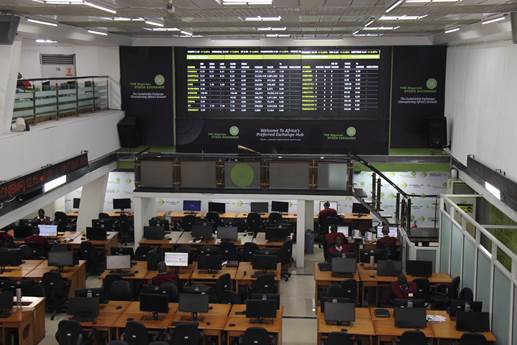THE STATE OF PLAY IN THE INVESTMENT LANDSCAPE AND HOW IT AFFECTS YOU
By Arthur Steven Research
In the last quarter of 2019, the CBN announced a policy that says OMO Bills can no longer be sold to Local retail and institutional investors but can still be sold to foreign investors. This created a 2-tier interest rate dichotomy in the money market similar to what we have had in the Forex market for more than a year now. The immediate impact was the crashing of Treasury bills, bonds and bank deposit rates to rates as low at 3% on 90-days deposits as accumulated cash chases after unavailable financial instruments.
The CBN further exacerbated the situation by increasing the Loan/Deposit ratio requirements of local banks to as high as 70% in an effort to encourage more lending to the economy. The result of this, of course, was a drop in demand for liabilities by the banks, causing further liquidity clog in the system. So, what is the impact of all this on financial assets and your investment strategy for the first quarter of 2020:
1. THE FIXED INCOME MARKET
If you are a local investor, the best you can get from Treasury bill and other fixed-income instruments now will be between 3-5% depending on the length of maturity you are seeking. In the bond market, you can get rates between 9% to 12% for maturity of between 10 to 30 years. Given that Inflation rate for December 2019 has just been announced at 12% and the prospect of inflation rising further due to factors such as the Border Closure and increase in minimum wage it is not best to be in the fixed income instruments and in the near future except you are regulatory-mandated to do so.
The negative real returns of about -7% that these instruments currently deliver can only get worse as the year progresses except there is a significant policy change. This looks unlikely at the moment as the CBN seems to be achieving its aim of keeping the exchange rate stable for now.
2. THE REAL ESTATE MARKET
Watch out for more developments to come into the market as the cost of borrowing drops due to the lower bank interest rates. We also suspect the banks will create more mortgage products, which might affect homeownership positively. We expect prices to improve in the sector due to this at least in the low to medium end of the market
3. THE EQUITIES MARKET
The expectation is that the latent accumulated funds that have been enjoying good returns in the fixed income market that now has very limited investment outlets will now have to seek risks in other to counterbalance increasing inflation. There is no better instrument that meets these twin objectives historically other than the stock market. The combination of low-interest rate, increased bank lending to the economy, limited investment outlets and increasing inflation rates are expected to have different impacts on different companies within the stock market but the overall impact is expected to be positive. Below is our take on how these factors might play out on a sector basis:
A. The Banking Sector-We expect that stocks in this sector will see an initial bump due to their relatively high dividend yields and low market prices for now. Investors are likely to look at the 12%+ dividend yield on the likes of ZenithBank, UBA, Access Bank, and GTB and like what they see in the short run. We, however, expect that over time this enthusiasm might turn to caution as investors start to become wary of the impact of the lower margins resulting from lower interest rates as well as the higher risk and higher NPL resulting from higher levels of lending.
B. The Consumer Goods Sector-The present situation is all positive for this sector. Lower interests mean lower interest costs while increasing availability of credit means increased capacity utilization and growth. We also expect that the recent increase in minimum wage for federal workers will have a positive impact on sales. We could also see some of them coming to raise fresh equity capital as the market price of their stocks improves. The main caveat is their ability to price the galloping inflation into their product prices. Stocks like Unilever, Cadbury, Dangote Sugar, Flour mills and NASCON in this sector.
C. The Cement Sector-The cost of capital will probably drop significantly on the back of lower interest rates. We suspect that the increase in minimum wage and inflation will profile an alibi for a further product price increase, which might impact margins positively. An increase in the availability of credit should boost the real estate sectors and therefore boost demand for cement products. The present situation should be a net positive for the sector. We like Dangote Cement, Lafarge WAPCO and BUA Cement at present valuations.
The Nigerian Stock Exchange All Shares Index closed up 9.8% in the first week of 2020 making it the best performing market in the world so far this year. Some individual stocks have returned as high as 30% this year alone. We expect that if the present combination of regulatory action and low valuation continues the market will be breaking more records in terms of returns this year. See below the year-to-date returns for some stocks this year alone.
For more information or analysis please call us on 09036881136, 09035996606, 08091054142 or send an email to info@arthursteven.com. If you will like to start investing why not head over to www.arthurstevenonline.com to open an online trading account.
https://investdata.com.ng/2020/01/the-state-of-play-in-the-investment-landscape-and-how-it-affects-you/




Comments
Post a Comment